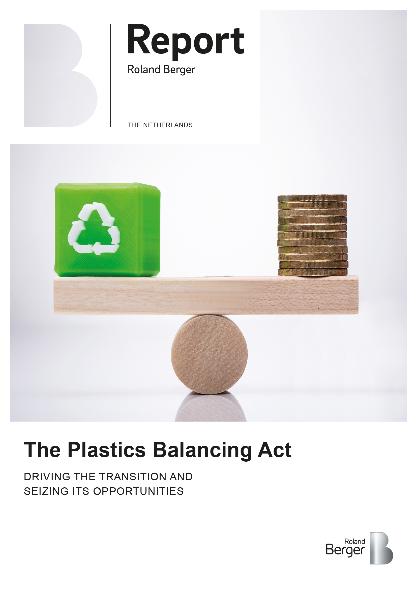The Plastic Balancing Act: driving the transition and seizing its opportunities
![{[downloads[language].preview]}](https://www.rolandberger.com/publications/publication_image/Roland-Berger-Report-The-Plastics-Balancing-Act-COVER_download_preview.jpg)
Roland Berger's study 'The Plastic Balancing Act' assesses the readiness of advanced plastic recycling and associated pathways towards plastics circularity


By Erwin Douma
Plastic has become an integral part of our lives. Its combination of properties is hard to beat: cost-effective, scalable, durable, lightweight and hygienic. It is an important tool in the pursuit of sustainability, as it helps preserve food and reduce fuel consumption, for example. But with dozens of plastic building blocks incorporated into millions of applications, the variety of waste streams with their own specific collection and recycling requirements is considerable. This illustrates the massive imbalance in our system. Plastics are still predominantly fossil fuel based, of which only 10% find their way back as recycling materials for new applications. Is the industry ready to increase recyclates in plastics production?
"There is no ‘silver bullet’ for plastics circularity. Players need to act now and define their pathway and technology line-up to enable circularity and create opportunities"
Using input from industry experts, our analysis took a three-pronged approach. We began with a macrosystemic analysis using a bespoke mass balance model, looking to pinpoint an optimistic, but realistic view of the extent to which plastics supply and demand can become circular. We then conducted a readiness assessment to identify the value chain’s capabilities and gaps in closing the loop via recycling, looking in particular at opportunities around advanced techniques. From this we were able to draw concrete recommendations for plastics producers, in particular, for developing their circular pathways in a way that will accelerate the transformation of the entire plastics landscape.
Today, about 20% of global plastic waste is leaked or dumped, 70% is burned or landfilled, and less than 10% is ultimately recycled. If the plastics industry does nothing, global demand for plastics is expected to triple by 2050. Efforts to counter this cannot be limited to substitution, such as replacing plastic bags with paper ones. Yet the plastics industry i s well on its way to looking at plastics in a different way. New start-ups with new concepts for reduction, reuse and recycling. The chemical industry's advanced recycling pilots. FMCGs' impressive targets for recycled content or substitution.
Even in the most optimistic scenario, about 35% of plastics (17 million tons) still need to come from virgin material due to process losses and the production of renewable materials. Bioplastics, of course, could become the new primary feedstock. Together with carbon capture and storage, it is a promising route to independence from fossil sources and could strengthen the circularity of the chain, especially in areas where there are process losses in recycling and incineration of non-recyclable plastic waste.
Is the industry ready to increase recyclates in plastic production from ~10% in 2019 to over 50% in 2050? We gathered input from various stakeholders in the value chain and leading market reports to critically examine current trends using five key factors: awareness, technology, investment, waste management and regulation.
![{[downloads[language].preview]}](https://www.rolandberger.com/publications/publication_image/Roland-Berger-Report-The-Plastics-Balancing-Act-COVER_download_preview.jpg)
Roland Berger's study 'The Plastic Balancing Act' assesses the readiness of advanced plastic recycling and associated pathways towards plastics circularity
